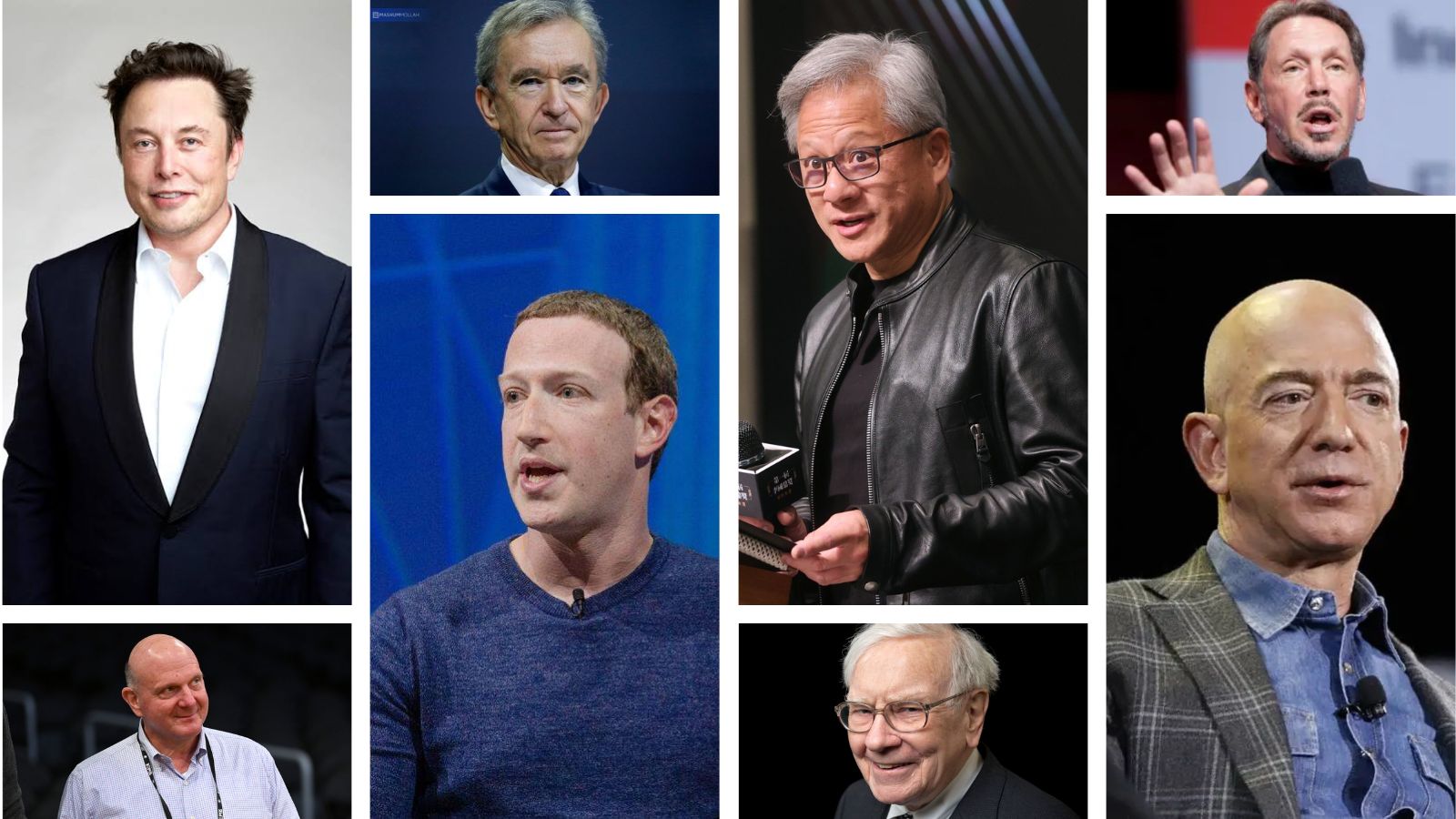Wealth has long been a measure of influence, opportunity, and global impact. Each year, Forbes releases its definitive ranking of the richest people in the world, providing insight into not only the size of their fortunes but also how these individuals shape industries, economies, and societies. In 2025, the rankings once again reflect a blend of familiar tech titans, retail giants, and energy moguls, all of whom have reshaped the global economy through innovation, investment, and sheer determination.
This article explores who the top billionaires are, how they accumulated their fortunes, and what their growing influence means for global markets. The presence of the richest people in the world on these lists is more than a showcase of wealth. It is a reflection of shifting trends in technology, finance, sustainability, and geopolitics.
The Dominance of Tech Titans
Technology continues to be the most powerful driver of wealth creation, and the richest people in the world list is dominated by entrepreneurs who turned groundbreaking ideas into global empires. Elon Musk, known for Tesla, SpaceX, and a variety of ambitious ventures, has maintained his position as one of the wealthiest individuals. His fortune, estimated at hundreds of billions, is closely tied to innovation in electric vehicles, renewable energy, and space exploration.
Jeff Bezos, founder of Amazon, remains another central figure. While he stepped down from the CEO role, his stake in Amazon and strategic investments continue to secure his place among the richest people in the world. Amazon’s role in global e-commerce, logistics, and cloud computing ensures Bezos’s relevance in both technology and business innovation.
Mark Zuckerberg of Meta has also staged a powerful comeback after turbulent years. His fortune rebounded as Meta doubled down on artificial intelligence and virtual reality. The company’s strategic alliances with global partners highlight how the richest people in the world often sit at the center of emerging technological revolutions.
Shaping Industries Beyond Technology
While technology dominates headlines, the richest people in the world also emerge from industries like retail, energy, and finance. Bernard Arnault, chairman of LVMH, underscores the enduring value of luxury goods. His empire spans fashion houses like Louis Vuitton, Dior, and Tiffany & Co., making him the face of high-end consumerism. Arnault’s ability to blend heritage craftsmanship with modern branding strategies has turned LVMH into a global powerhouse.
In Asia, Mukesh Ambani has positioned himself as one of the richest people in the world through Reliance Industries. His diversified empire covers petrochemicals, retail, and most recently, a strong push into technology and telecommunications. Ambani’s pursuit of artificial intelligence partnerships with global giants like Google and Meta highlights how billionaires outside the West are shaping the future of digital connectivity.
Meanwhile, Warren Buffett remains a fixture on the list, proving that investment acumen and a long-term vision can build sustainable wealth. His company, Berkshire Hathaway, continues to deliver steady growth by investing in diverse industries ranging from insurance to railroads.
The Global Impact of Billionaire Wealth
The influence of the richest people in the world extends far beyond their corporate empires. Their decisions often ripple through stock markets, shift investment patterns, and even impact government policies. For instance, Elon Musk’s comments on cryptocurrencies have triggered massive price swings. Similarly, Jeff Bezos’s investments in space exploration signal a future where private billionaires could control access to interplanetary travel.
Philanthropy also plays a central role. Bill Gates, though no longer the world’s richest, continues to use his wealth to address global health crises, climate change, and poverty alleviation. This demonstrates how the richest people in the world are redefining the intersection of wealth and responsibility.
Critics, however, argue that such concentration of wealth exacerbates inequality. In many parts of the world, billionaire fortunes are growing faster than national GDPs, raising concerns about whether economic systems fairly distribute opportunities. The debate continues over whether billionaires should be taxed more heavily or encouraged to direct their wealth toward solving global challenges.
Trends Shaping the Future of Wealth
The richest people in the world rankings also provide clues about the future of business. A few key trends stand out:
- Artificial Intelligence and Tech Integration: As seen with Zuckerberg, Musk, and Ambani, AI is becoming a critical driver of wealth creation. Companies that lead in AI development are likely to produce the next generation of billionaires.
- Sustainability and Green Energy: Tesla’s success reflects a growing demand for green solutions. Future wealth may increasingly come from companies addressing climate change and renewable energy needs.
- Global Diversification: While American billionaires dominate, Asia is rising fast. Entrepreneurs from India, China, and Southeast Asia are joining the list, indicating that future rankings will become more globally diverse.
- Luxury and Consumer Brands: The sustained dominance of Bernard Arnault shows that consumer demand for exclusivity and luxury remains resilient, even during economic downturns.
- Space and Frontiers Beyond Earth: With Musk and Bezos investing heavily in space technology, the richest people in the world may soon be those who commercialize access to space resources.
Conclusion: More Than Just Numbers
The Forbes list of the richest people in the world is not just a ranking of wealth. It is a mirror of our global economy, reflecting where value is created, which industries are thriving, and who holds the power to shape our collective future. These billionaires are both admired and criticized, but their influence is undeniable.
As technology evolves, global markets expand, and challenges like climate change and inequality intensify, the wealth of these individuals will continue to attract attention. What remains certain is that the richest people in the world will always be central figures in shaping the story of human progress.
Read More






 Thursday, 05-03-26
Thursday, 05-03-26







